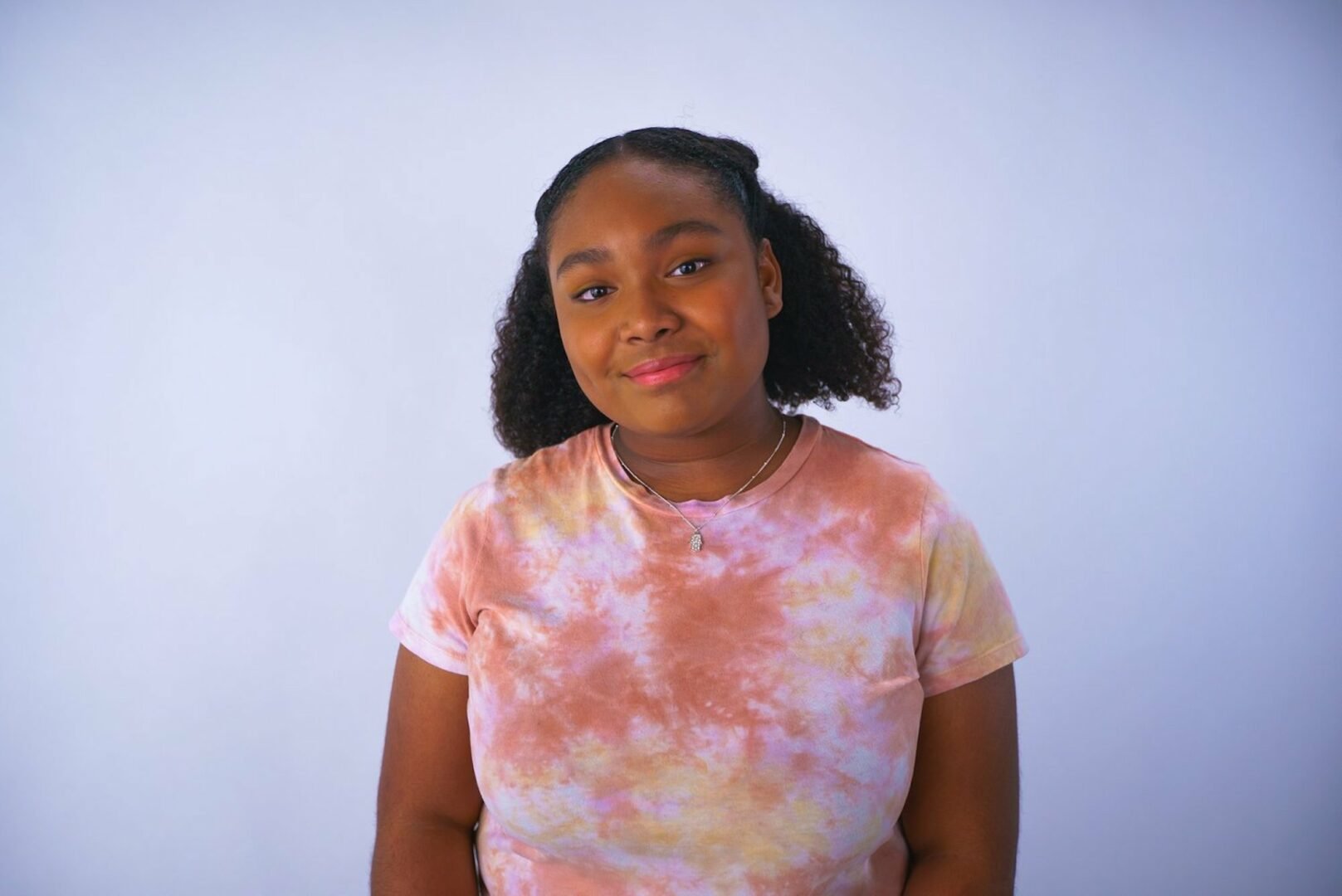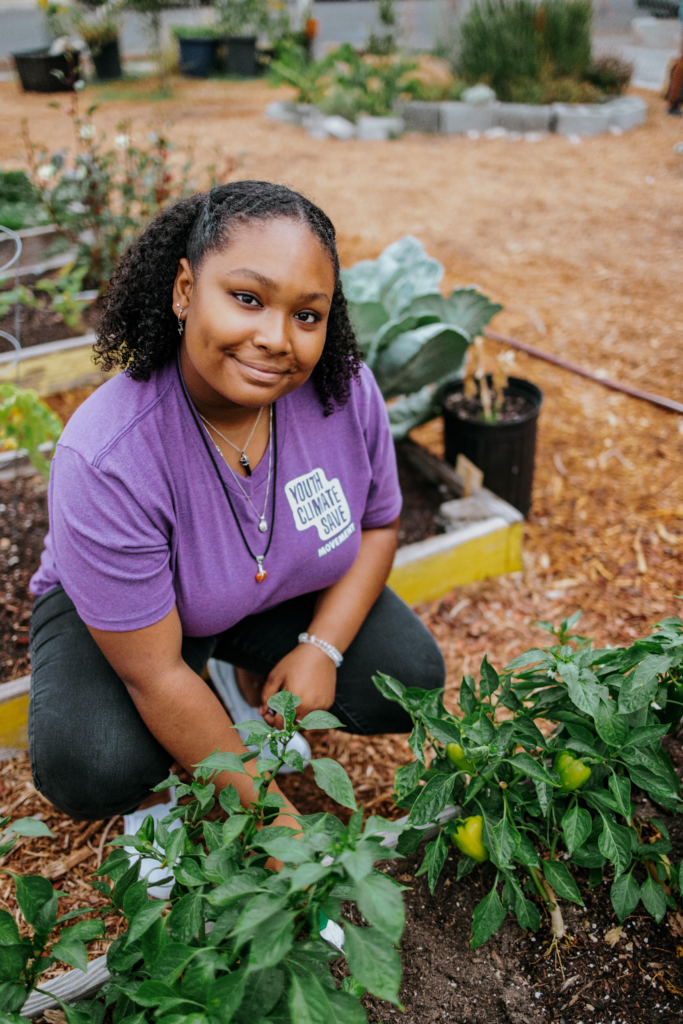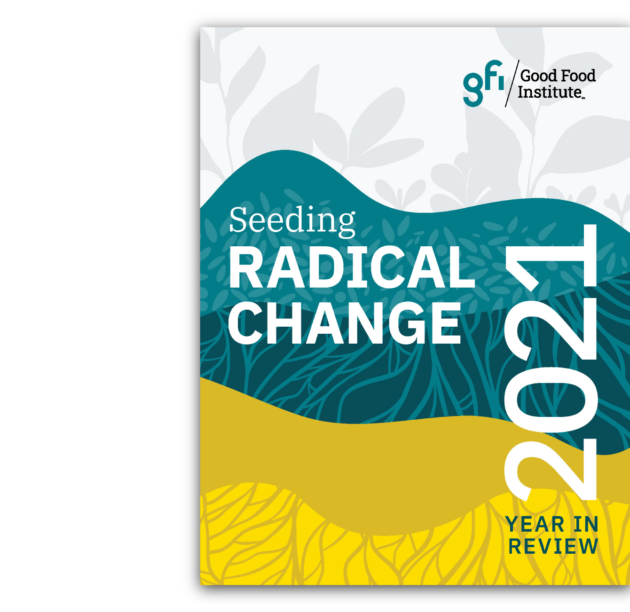Meet Genesis Butler, founder of Youth Climate Save

Youth Climate Save
Genesis Butler is a fifteen-year-old Afro-lndigenous environmental, climate, and animal welfare activist. She is also the founder of Youth Climate Save (YCS), the first youth-led environmental organization that focuses on addressing the link between animal agriculture and climate change and aims to give all young voices a platform. YCS works with schools, governments, and hospitals in communities across the globe to create campaigns, events, and legislation that can help the planet, people, and animals.
GFI’s events and community engagement specialist, Ingrid Eck, who is also a member of Youth Climate Save’s DC chapter, spoke with Genesis about her experiences working in this space:
Ingrid: Genesis, even though you are only fifteen years old, you have been working in the advocacy space for many years now. At age ten, you became one of the youngest people ever to give a TEDx talk, inspiring tens of thousands of people to think more about their food choices. Could you tell us a bit about your journey navigating food systems advocacy over the past 5 years? Have you had any major “ah-ha” moments that shifted your approach?
Genesis: I actually first became aware of how much animal agriculture affects the planet and contributes to the climate crisis when I was trying to figure out a topic for my TEDx talk. When I was invited to apply, they told me they would love for my talk to be about plant-based diets. While I was doing research for my talk, I realized how little people knew about animal agriculture and the climate crisis so I felt this was the best topic to focus on. After delivering that talk, I was inspired to keep educating people about this important issue.
It was really tough in the beginning as a climate activist who followed a plant-based diet. I didn’t feel welcome in climate spaces because I was talking about something most people weren’t talking about. But I didn’t give up, and it paid off because I feel like the information I share is more accepted now and people are acknowledging how important it is to talk about food systems when it comes to the climate crisis.
My “aha moment” came when I decided to start Youth Climate Save. I realized there were other young people who wanted to raise awareness about animal agriculture and the link to climate change because they would reach out to me and ask me how I started as a climate activist or how they could become activists too. We are so much stronger when we unite. I started Youth Climate Save to give youth a platform to discuss environmental issues such as the damage to the planet caused by animal agriculture.
Ingrid: As we both know, the world will not get to net-zero emissions without addressing food and agriculture. Alternative proteins – meat made from plants or cultivated from cells – are a key aspect of how we do that. We’re just now beginning to scratch the surface of these new technologies and explore their potential to mitigate climate change, biodiversity loss, and food insecurity. What most excites you about reimagining the way meat is made?
Genesis: Well, I think what excites me most is that it will allow people who say they can’t give up meat or think they can’t live without it a way to continue to eat it without harming animals and the planet. I have so many family members outside of my immediate family who won’t try alternative proteins because they think it won’t be good. I think if alternative proteins cultivated from cells were widely available, then more people would be willing to try them because they wouldn’t have to give up eating animal-based meat. This is exciting to me because it would have such a positive impact on animals and get us closer to net-zero emissions.
Ingrid: What are some of the biggest challenges you have faced as a young person working in climate activism? Any lessons learned you’d be willing to share to help inspire other young people who might be experiencing something similar or related?
Genesis: One of the biggest challenges is constantly seeing new stories about climate catastrophes. As a young person this can be hard because I feel like we aren’t doing enough as fast as we should. Another challenge is seeing how people in climate spaces try to downplay the impact of industrial animal agriculture and the ways that dietary shifts can slow down the climate crisis. Some people will say things like ‘it shouldn’t be something climate activists should focus on because it isn’t accessible to everyone.’ So, this is why it’s important to make alternative proteins accessible to all. One lesson I learned is to not be overly influenced by what other people think or say. You will only be a stronger activist when you continue on your own path and use your voice for the things that matter most to you.
Ingrid: The United Nations International Youth Day is commemorated every year and focuses on “bringing youth issues to the attention of the international community and celebrating the potential of youth as partners in today’s global society.” What issues would you like to see prioritized on International Youth Day 2022 and what are a couple of ways the international community can partner with Youth Climate Save to address these issues?
Genesis: One issue I would like to see prioritized on International Youth Day 2022 is educating youth on the impact of animal agriculture and providing them with information and resources to eat more climate-friendly foods. I think my generation is more willing to eat plant-based foods but greater access and affordability are needed.

The international community can partner with Youth Climate Save by sharing the information we’ve created to help and inspire youth to incorporate more plant-based foods into their diets. For example, we share plant-based recipes and information on the climate benefits of these foods. We have even offered a support group. I think that if more people shared Youth Climate Save resources then it would really help youth who want to eat more sustainably.
Ingrid: The Good Food Institute brings together a global community of students, scientists, industry professionals, policy experts, and thought leaders who are united by the shared goal of making alternative proteins no longer alternative. We envision a world where consumers choose plant-based or cultivated meat over conventional meat because it is simply the better option. Many young people from diverse backgrounds are joining the alt protein community, but, just like in the broader food sector, leadership in this space is still quite homogenous. In the spirit of intergenerational collaboration and ensuring all voices have a seat at the table, is there any advice you can share to help us to better collaborate with young climate activists or youth more generally?
Genesis: I think it is important to collaborate with youth climate activists or youth because our generation is really eager to do all we can to ensure we have a future on a thriving planet. One way to do this is to provide youth opportunities to work with organizations like the Good Food Institute by having brainstorming sessions where we can share our ideas on how to get more youth interested in climate-friendly foods and food systems. We influence our parents and family members. If you can get youth on board with alternative proteins then it will have a ripple effect and adults will be more willing to eat them as well, doing their part to lower their carbon footprint.
Another way is to reach out to youth who may not have a huge platform because this will empower them and show them that they don’t need a lot of followers on social media to make a difference.
Ingrid: Finally, what’s your favorite plant-based dish? And do you have any favorite plant-based meats or other alternative protein products?
Genesis: My favorite plant-based dish is lasagna. I make it from scratch using tofu for the ricotta and I make my own sauce using fresh tomatoes and herbs. My family eats it all up and my siblings always fight for the last piece! It’s hard to choose a favorite plant-based meat because if I see a new one in the store, I will try it and I always love it. I switch up the plant-based meats I use because there are so many so it’s hard to choose just one! For other alternative protein products, I love Brave Robot ice cream! I love how creamy it is and I can buy it in many of my local grocery stores.

Powered by philanthropy
The Good Food Institute is a nonprofit think tank working to make the global food system better for the planet, people, and animals. Alongside scientists, businesses, and policymakers, GFI’s teams focus on making plant-based and cultivated meat delicious, affordable, and accessible.

